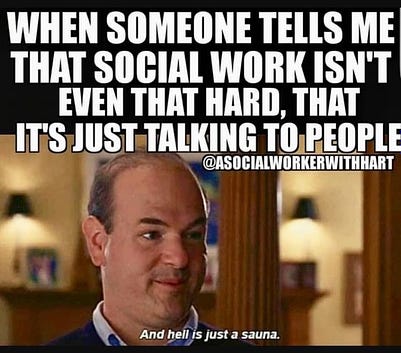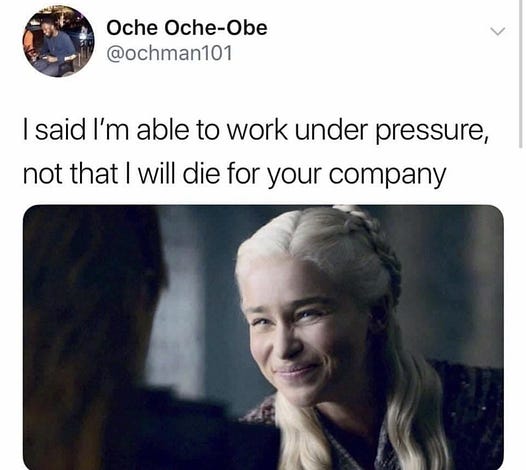When the going gets tough, you wonder what you’re doingOn gender, social sector burnout, and toothpaste.This edition is third in a five part series on ‘Delight’, but can be read without that context. It should not take two weeks to run out of toothpaste. For 2 weeks now, I have been squeezing toothpaste out of the tube. For 2 weeks, I have known that any day now, I will walk into the bathroom, and find no toothpaste for that morning or night. The extent of my imagination stops there, because even in my imagination, my brain saves the energy to walk up to a new room, and come back to brush my teeth with a new tube. The cupboard which stores our bathroom supplies is two rooms away. It’s a long and unnecessary walk until the deformed red of Close Up continues to yield. What I can tell you, however, is that it takes significant effort to pull that toothpaste out without pulling a muscle. I am still doing the work, it’s just not the work I should be doing. Clearly, I have been in the overthinking phase for the past few weeks. Few weeks is my polite way of saying months. I have reached that stage in my thinking where everything is a metaphor, and still fails to capture exactly how I feel about this and that. Chalo koi ni. This is the long overdue, third part of my newsletter series on ‘Delight’, and it is a post with lots of anger. I apologise in advance for all the sentiments it gets mixed, but I trust you to navigate through it just fine. So, let’s get on with it. In this edition, I talk about the ‘great resignation’, social sector burnout, and what a jump in self-worth looks like. Onto some bad adviceAt the risk of losing the metaphor midway, let me tell you that I have treated myself, and known people, mostly women, who treat themselves like that diminishing tube of toothpaste. We continue to put in the work until we no longer can, fully aware of our declining strength and crumbling mental health- striving to change people and situations beyond repair. From all the movies, novels, and TV series we grew up on, we give ourselves permission to believe that effort, love, and self sacrifice will change our lives, and that one day, everyone will realise how lovely, how fully (super)human we have been all along. That might happen, I have watched my share of happy endings on screen too. But it also helps to realise that love is made of finer things. A gaze that is not trained to see you will not see you, and moving more vigorously will not help beyond a point. It’s the gaze that will need to change. You will need a new toothpaste, a new situation, a new relationship. Walk away and get it. Great, but that’s terrible advice. Anyone who has been in or is in an unequal relationship at home or work, knows why this doesn’t apply. For starters: people, work, and relationships are not as easily discarded as toiletries. There’s much to consider: love, commitment, shared history, love by association, family values, personal values, self-image, stigma, finances, social pressures… Second, even if all of this sorts itself out, human beings are a hopeful species. That’s a polite way of saying that our brains have evolved to save energy, to avoid difference, to resist drastic changes. We do not like uncertainty, and would much rather suspend ourselves in a universe of hostile knowns, than unidentified unknowns. Third, and this is the more controversial, less spoken of one- we are taught that hardwork, effort, and love is all it takes for someone to love us back, see us as full human beings, and put in their share of work. How sweet. The problem with that? It presupposes the essential equality of all human beings, and their inherent propensity towards justice. It assumes that we all speak the same love language, and dismisses the role of power structures in defining what will and will not be seen as love, work, and effort. It implies that any deviation from love, any act of injustice, any form of abuse is a mere aberration, a mark of personal temperament, and not the way things are organised. There’s nothing revolutionary about this anymore. Feminist literature and social commentary has time and again spoken about the structures and systems which direct the flow of love and respect from the less powerful to the more. Mother takes care of everyone because she loves everyone, not because unpaid care work is the foundation of industrial societies. The wife loves her husband and his parents because she is devoted to him and all the lovely peoples of the universe, not because the control of women’s sexuality is at the centre of maintaining caste and class hierarchies. Sure, we get it. What is new, however, is the application of these household and family systems to the workplace. As more and more women join the workforce globally, (less and less in India), the internal dynamics of an office space follow the same script. Women continue to be underpaid, overworked, and sidelined, even as they keep falling in and out of the working population per whims of their parents, boyfriends, husbands, in-laws, and children. This is a huge topic, and LinkedIn is probably a better space to pursue this thread. What I am interested in though, is how neatly the household dynamics overlap with the power structures in the social sector in India. I grew up in India at a time when engineers were migrating to the development sector in huge numbers. The era of manufacturing doctors and engineers was waning, and the not for profit space where people found purpose, passion, and potential ushered itself in. I won’t go into the details of this growth and the excitement it brings to my LinkedIn life, but my point is simple and it is this- the social sector in India is to workspaces what households have traditionally been to industrial economies. This is where you find meaning, this is where you work for a cause, this is where concepts like mental health and work-life balance do not apply, because isn’t that why you don’t work for the Big Four? That is not to say that the social sector doesn’t pay. If I had a hundred rupees for every time someone asked me why I get paid if I work for a non-profit, I wouldn’t need to work. It pays, and sometimes, it pays well enough. But the narrative of working for a cause, changing the lives of others, and finding meaning in what you do, can steer you away from all the things that are not working out. If the hours of work are long and unjustified, if the work culture is abusive, if there is guilt involved in not being available on the weekend, if your boss is a stalker, if there is shouting on Skype calls- you have every right to call it out, crib about it to friends in corporates, walk away, or just feel low on bad days. Social sector work is still work, and it can be unhealthy. We are here because we have acknowledged that something is wrong with the world, life is hard enough for us. Enter: New Toothpaste!I had promised a series on Delight, so when are we coming to the “Delight” part of things? Well, one of the most delightful moments for me in 2021 was when I finally resigned myself from a work situation which wasn’t nurturing me, and hadn’t for a while. I cannot take you to the exact moment of revelation, or the dramatic overturning of desks. It was nothing as documentary worthy as The Office. It was a much longer, much simpler, much calmer realisation- being the star performer in an abusive environment does not change the environment. It was a moment of finding self-worth and self-love in something deeper than a procession of work days, a moment of walking in on myself thinking- what the fuck are you doing? Though it had taken me a while to come to this, I know that no one else could have said it to me, it wouldn’t have been their place, and it wouldn’t have been their journey. I know that I was privileged enough to walk away from a monthly salary, and a cause I loved, without the next job in hand. I had all the support I needed from friends and family, and therapy to get through the remnants of blurry days, sleepless weeks, invasive comments, and a dwindling resource of personal strength. But I did it only when I ran completely out of toothpaste. Months later, I am in a much better space within the sector where mental health is a priority, and the people are actually nice. I have Khwaabghar, and I have integrated my work day into the reading, yoga, walking, and podcast hunting I began during my break. I am still out to fill meaning into my days and work for the vulnerable populations, myself included. I still overthink my email signature and wonder at how my message my will be received if it does not, in fact, find the receiver well. I still meet my deadlines and volunteer to do more than necessary. But I have spent days explaining to myself that working in the social sector does not have to feel like working for a family. Families are patriarchal institutions which came into being in service of an economic system, and that’s not where you should be borrowing your values from. Love is made of finer things, and power is not one of them. I am so, so lucky to have reached where I am, but it took a long time, as walking away from ‘love’ usually does. I do catch myself in stress response mode more often than I’d like. When my present colleagues are nice to me and nudge me to take leaves and breaks when I am not feeling well, my universe shifts a little. This is not a language I am used to, but it is my language for sure. Through this process of walking away and listening closely, I have understood that coming back to yourself can sometimes feel like re-learning a forgotten language. But more importantly, I have learnt that my language was always worth holding on to. Updates from Khwaabghar
If you liked this post from Khwaabghar: For Stories and Tellers, why not share it? |



